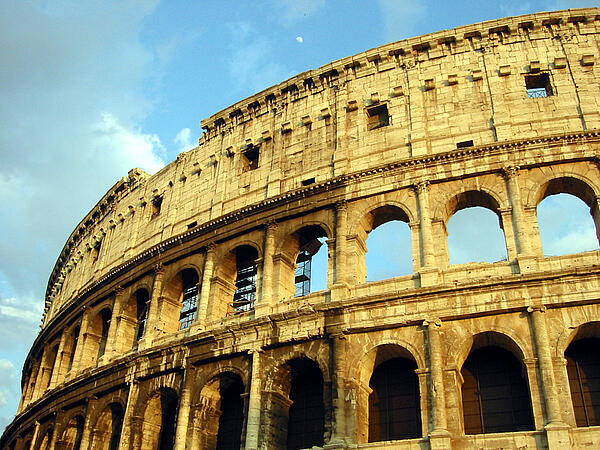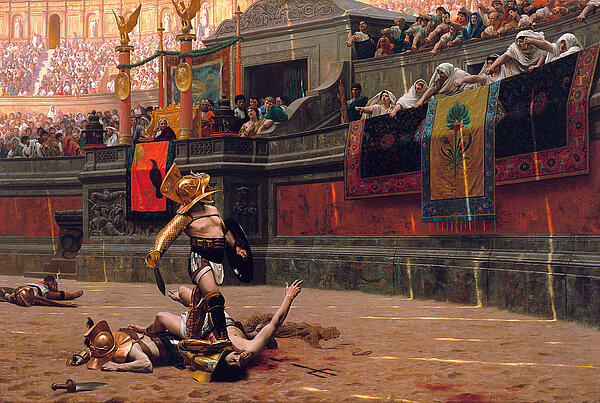Entertainment in Ancient Rome
Roman entertainment was a bustling, busy atmosphere for people of all wealth and statuses. The most well known pastimes for the Ancient Romans included gladiator battles, chariot racing, and more.
One of the most famous and recognisable buildings in Rome is the Colosseum - now a major tourist attraction. The Ancient Romans also saw it as an attraction for viewing various events. The building could hold over 50,000 people, all who were well looked after by the authorities. During summer when the temperature rose, the audience were protected from the sun’s heat by a huge canopy that covered the top of the stadium.
The Colosseum provided many popular sports and activities like re-enactments of famous battles, mythological dramas, mock sea battles, and much more brutal events including the feeding of Christians to lions and animal fights. Wild cats, buffaloes, bears and elephants would all be kept in cages and made to fight each other - some animals even died out because they were so in demand by entertainment organisers.

More exciting to the Romans than animals were the gladiator fights that regularly took place in the Colosseum. Many gladiators were slaves or prisoners of war and were seen as entertainment made to be killed, and at least 50% were not expected to survive. However gladiators who had survived a fight and fought well, could be given the choice of life or death by the audience whilst the emperor was also present. Thumbs up meant life, and thumbs down meant death. The Roman writer Seneca wrote that “the only exit (for a gladiator) is death.”
Shows were usually free to the public as the emperors believed it was a good way to keep people happy with the city’s governing. Free entertainment and free bread was a combination used to keep the unemployed content.
Gladiator fights may have also occurred in smaller amphitheatres. Chariot racing took place at the Circus Maximus which was a popular family event within Ancient Rome.

To today’s society, Rome’s entertainment seems very cruel. However it did not all involve violence - many Romans who were well educated felt appalled at the cruel events, and went to the theatre instead for comedies and poetry readings.
"Don't forget, there's a big gladiator show coming up the day after tomorrow. Not the same old fighters either. They've got a fresh shipment in. There's not a slave in that batch. Just wait. There'll be cold steel for the crowd, no quarter and the amphitheatre will end up looking like a slaughterhouse. There's even a girl who fights from a chariot."
Petronius in AD 60.
"The wild beast hunts, two a day for five days, are magnificent. There is no denying it. But what pleasure is there in seeing a puny human mangled by a powerful beast or a splendid animal killed with a hunting spear."
Cicero in 50 BC
See also: How was Rome Governed
MLA Citation/Reference
"Entertainment in Ancient Rome". HistoryLearning.com. 2024. Web.
